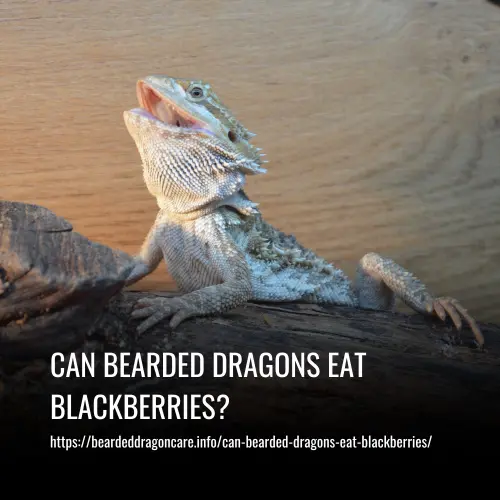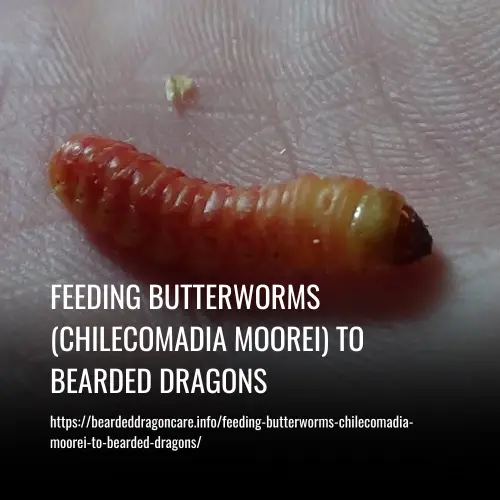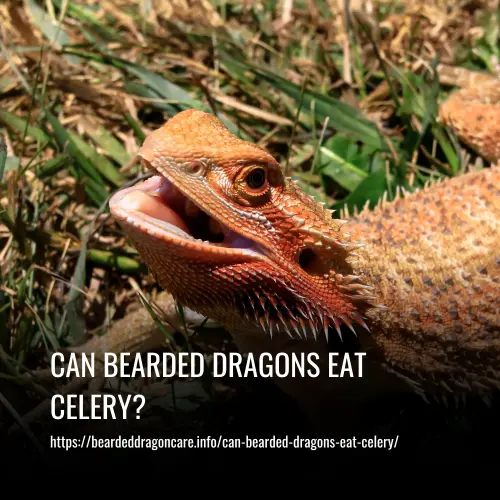Bearded dragons are cute little lizards that live in Australia. They’re also known as dragon lizards because of their large heads and scaly skin.
Some people say that bearded dragons cannot eat dill. Others say that they love it. In fact, some even claim that dill helps them shed weight.
I’m going to tell you exactly what bearded dragons eat and whether or not they can eat dill.
What is Dill?
Dill is the annual plant known as Apium graveolens. It belongs to the Apiaceae family, which consists of celery, fennel, parsley, cilantro, and caraway.
This herb is native to Europe and Asia, where it was commonly grown as a vegetable. Today, it is cultivated worldwide.
In addition to being used as a culinary ingredient, dill is also used medicinally. It has long been used to treat gastrointestinal problems, including indigestion, flatulence, and diarrhea.
It is also believed to reduce gas and bloating caused by eating spicy foods.
So if you suffer from any of those conditions, try adding some dill to your diet. You may find that it helps alleviate your symptoms.
Nutritional Value
This herb is surprisingly rich in vitamins A and C, iron, and calcium. It has several benefits for human health, including being used to treat colds, coughs, sore throats, fever, flu, and bronchitis. It also helps prevent cancer, heart disease, diabetes, high blood pressure, arthritis, and osteoporosis.
But did you know that it also has several benefits for bearded dragons? It’s great for treating skin conditions, such as scaly patches, redness, and dry skin. And it’s also beneficial for keeping your beardies healthy and happy.
So whether you’re using it for culinary purposes or for your beardies, this herb is surprisingly nutritious!
Is Dill Safe For Your Bearded Dragon?
Beardies are reptiles, and reptiles eat lots of different foods. Some of those foods include insects, worms, fruits, vegetables, eggs, meat, fish, and bones. But sometimes, reptiles eat plants, including dill.
But dill isn’t an ideal food for bearded dragons. It’s too acidic and does more damage than good. If you feed your bearded dragon dill, it may cause problems.
Your bearded dragon might experience diarrhea or vomiting after eating dill. And if your bearded dragon eats enough dill, it could become dehydrated.
So if you want to keep your bearded dragon healthy, don’t give him dill. Instead, feed him nutritious foods like fruit, veggies, meat, fish, eggs, and bones.
Can bearded dragons eat dill pickles?
Bearded dragons are reptiles that belong to the lizard family. They are native to Australia and New Guinea. Bearded dragons are known for being friendly and docile. They are usually kept as pets or as exotic animals.
They are omnivores, meaning they eat both plants and meat. Their diet consists mainly of insects, fruit, vegetables, eggs, and occasionally small mammals.
Dill pickles aren’t recommended for bearded dragons because they contain a high level of sodium. You should only feed them fresh herbs with a small amount of salt.
Dill pickles are made from cucumbers and vinegar. They are salty and sour. They are used as a condiment for sandwiches and burgers.
Bearded dragons are sensitive to high levels of sodium, so you shouldn’t give them dill pickles. Instead, try feeding them fresh herbs with a little bit of salt.
Benefits of Feeding Dill To Your Bearded Dragons
Dill is an acid herb that’s great for your bearded dragon. It’s rich in vitamins and minerals that are important for growth and overall well-being.
Vitamin A
Vitamin A is a vital nutrient that helps maintain vision, boost the immune system, and aid in stimulating the reproductive system in your bearded dragon.
Calcium and Phosphorus
Calcium and phosphorous are essential to your bearded dragon’s health. They help build bones and teeth and keep your pet’s muscles and organs functioning properly.
Hydration
Hydration is key for your bearded dragon. Without enough water, dehydration occurs. This can be caused by improper diet or illness. Dill is high in water content, so it’s a great source of hydration for your bearded dragons.
Disadvantages of Feeding Dill to Your Bearded Dragon
There are several disadvantages to feeding your bearded dragon too much dill. Some of those include:
Excessive Vitamin A
Excessive amounts of vitamin A can cause liver damage. You should never feed your bearded dragon any kind of greens that contain high levels of vitamin A.
High Fiber Level
Fiber is an important component of a bearded dragon’s diet. But eating too much dill can lead to a buildup of fiber in your bearded dragon’s gut. This causes problems with digestion and may result in diarrhea.
Unbalanced Calcium Phosphorus Ratio
Because dill has an unbalanced calcium / phosphorous ration, it prevents your bearded dragon from taking in enough vitamin D. This lowers the level of calcium in your bearded dragon’s system.
FAQs
Is dill good for bearded dragons?
Bearded dragon owners can feed their reptiles fresh dill leaves as part of their daily routine. You should take care not to overdose them with vitamin A, which could lead to health issues.
Can Bearded Dragons Eat Basil?
You can give basil to your bearded dragon once a week.
Can Bearded Dragons Eat Herbs?
Herbs not only help keep your bearded dragon healthy, but they taste good too!
Conclusion
Dill is an herb that has been known to repel insects and reptiles alike. It’s also a common ingredient in reptile diets. So, yes, bearded dragons can eat dill. However, it’s important to note that dill isn’t always safe for reptiles.
Some species of snakes and lizards actually enjoy eating dill. Therefore, it’s important to check with your vet first before adding dill to your bearded dragon’s diet.


